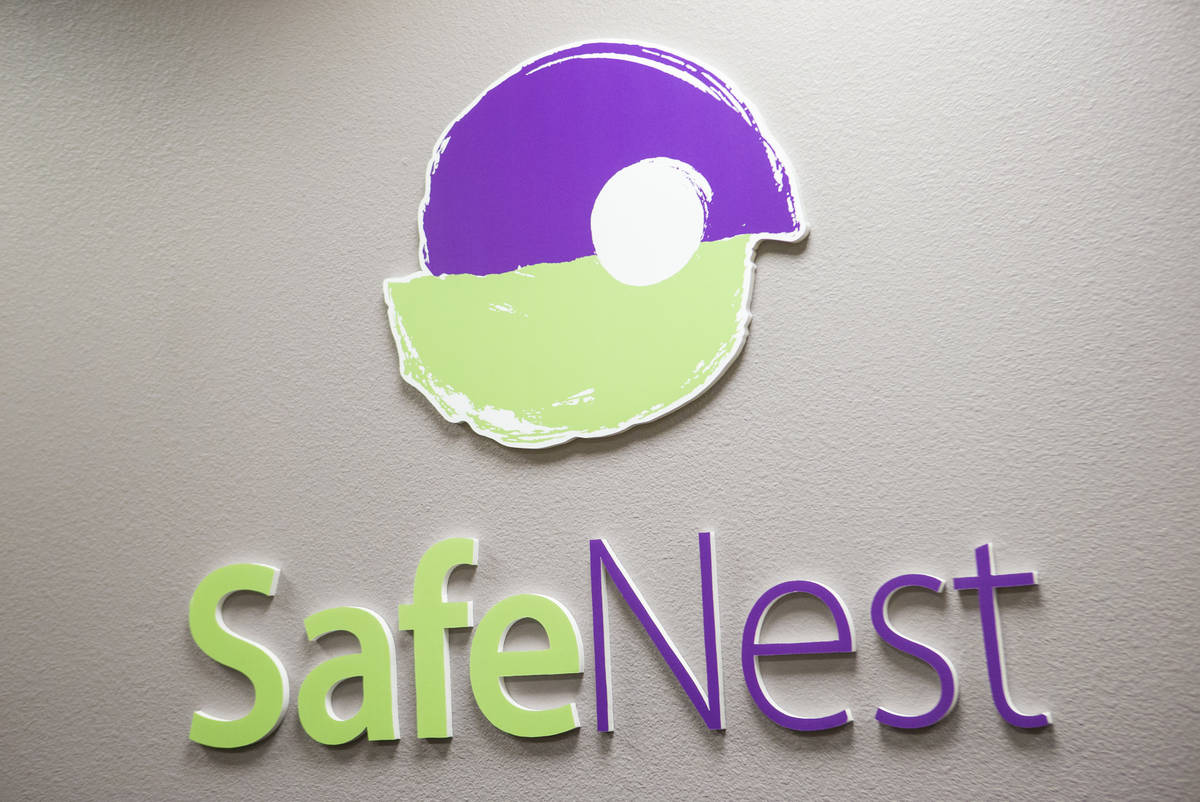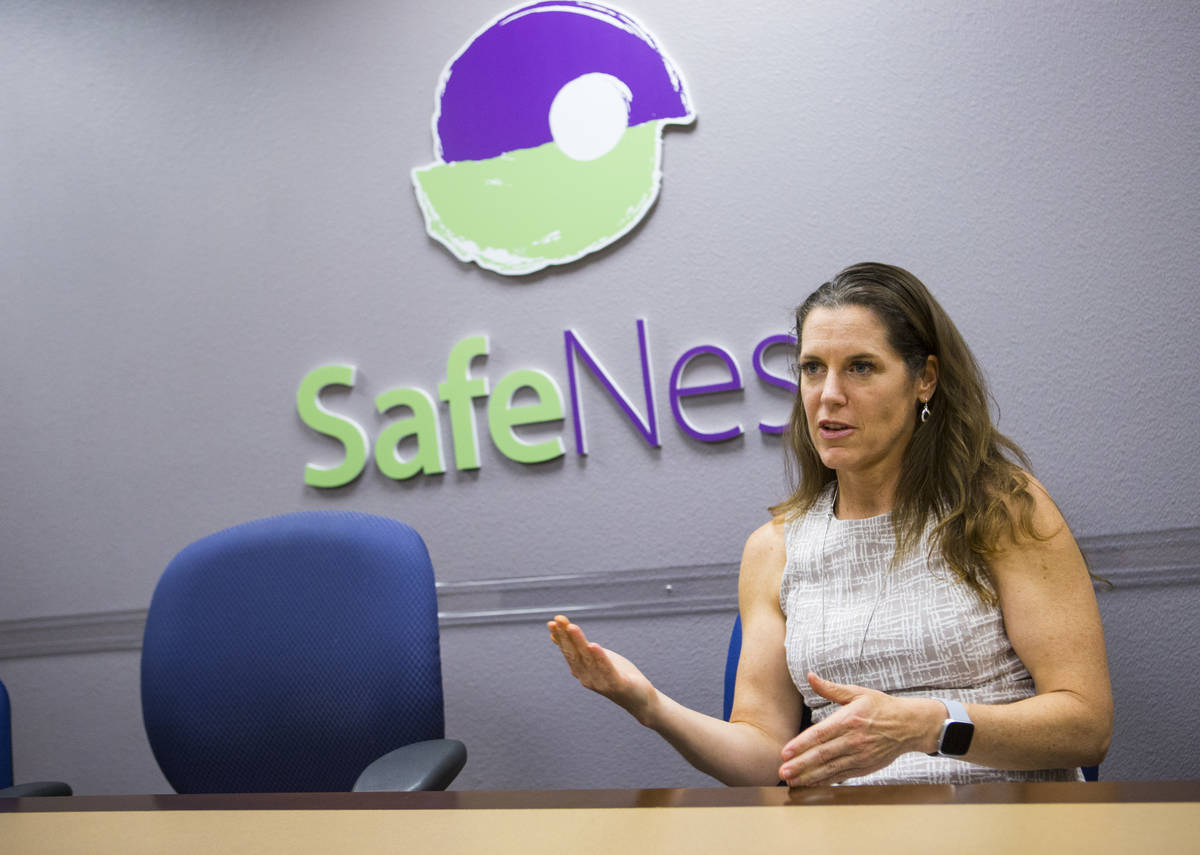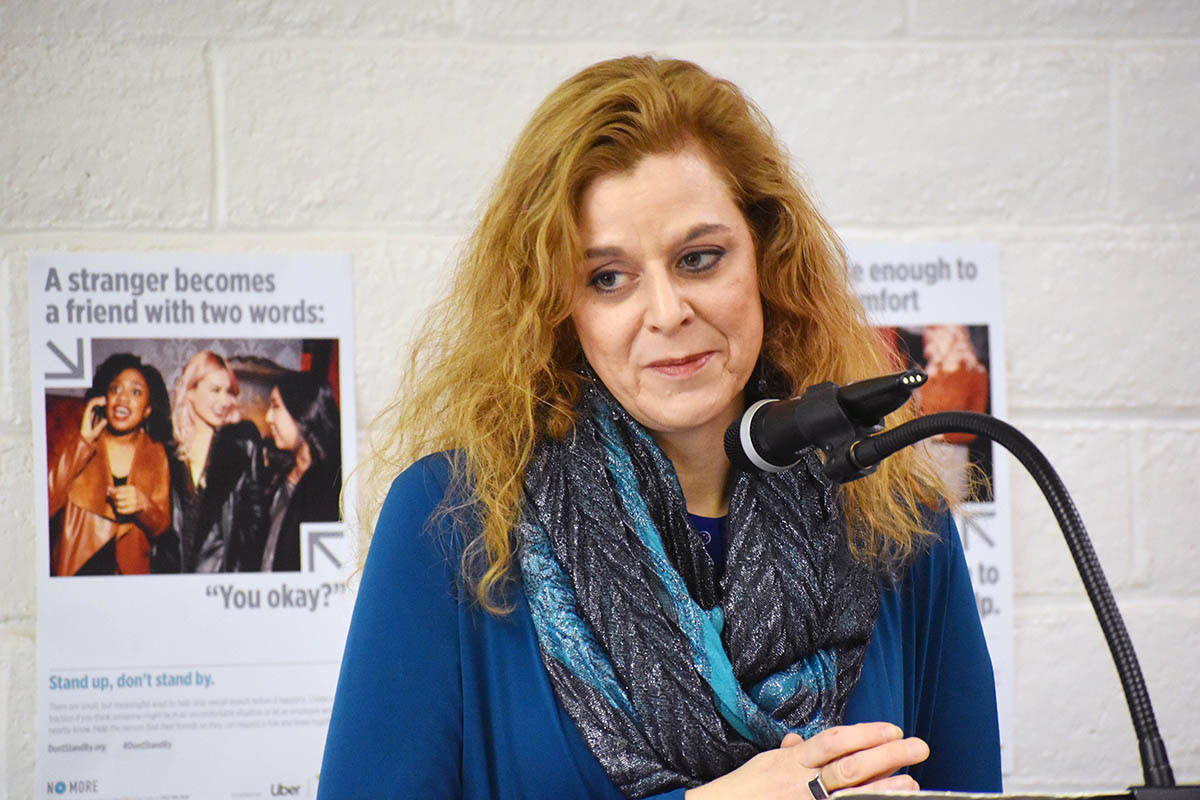Amid social distancing, what if home isn’t a safe place?
Social distancing measures amid the COVID-19 outbreak could be catastrophic for victims of domestic and sexual abuse who are essentially trapped at home.
“When victims are forced to stay home with their abuser, there’s certainly an elevated risk for violence that in some cases could escalate to homicide,” said Liz Ortenburger, CEO of SafeNest, a local nonprofit dedicated to ending domestic violence.
Across the country, declarations of emergency have been proclaimed, entire school districts have shut down, and a vast number of companies have shifted to remote work to break the lines of transmission of the novel coronavirus, now a global pandemic. In the most significant response yet in Nevada, Gov. Steve Sisolak revealed on Tuesday his “Stay Home for Nevada” plan, a 30-day statewide closure of all casinos and nonessential businesses.
Advocates worry these drastic measures, though necessary, leave domestic and sexual violence victims behind.
“This is a vulnerable group that not a lot of folks are thinking about,” said Daniele Staple, executive director of the Rape Crisis Center. “For this group, sometimes home isn’t always the safest place.”
‘Triggers’ for domestic violence
And as panic surrounding the respiratory illness and its financial impact increase, so too will intimate partner violence, victim advocates say.
During the Great Recession, there was an uptick in domestic violence as economic upheaval “led to an increase in men’s controlling behavior toward their wives and romantic partners,” according to a national study by Princeton and two other universities.
“The same thing is going to happen here,” Ortenburger said. “Financial stress, living paycheck to paycheck, that’s a trigger for domestic violence.”
Couple the financial hardship with guns in the home, Ortenburger said, and “you’re escalating toward a homicide.”
“And if that’s your reality, you need to figure out how to get out of there safely,” she warned.
Coast to coast, including in Las Vegas, gun sales appear to have surged over safety concerns. In the past two weeks, local gun shop owners have told the Las Vegas Review-Journal, panicked buyers are clearing shelves of ammunition, shotguns and pistols.
“All the advocacy organizations, both local and national, are very aware that this is a heightened risk time,” Staple said. “I think it is fair and safe for victims to anticipate a challenging and even more dangerous time.”
Safety pathways
So what can you do to protect yourself — or your children — if you’re quarantined at home with an abuser? Both Ortenburger and Staple said creating a safety plan, or altering an existing safety plan, is crucial as the impact of the pandemic continues to play out:
— Identify your partner’s use and level of force so that you can assess the risk of physical danger to you or your children before it occurs.
— Ask yourself how you’ve made yourself safe in the past. Ortenburger suggests avoiding bathrooms or kitchens where there are dead ends in the event of violence. “Keep moving. Create distance,” she said.
— Identify safe areas of your home where, if possible, there are no weapons but a way to escape.
— Teach your children how to get help and let them know not to get involved in the violence. Create a code word or signal that would let them know to get help or leave the house.
— Create plausible reasons for leaving the house at different times of the day or night. Staple said that during social distancing, using the excuse to go to the store to buy more food or supplies could get a victim out of the house for an extended period of time.
— Know where the nearest public phone is located if you don’t have access to a cellphone. Call a local shelter for resources or 911 for immediate help. “There is never a bad time to reach out for assistance,” Staple said.
Getting help
While many businesses across Southern Nevada are closing their doors for the next 30 days — or even longer, if Sisolak chooses to extend his directive — both SafeNest and the Rape Crisis Center will remain open and running.
“That’s not a path we’re going down or intend to go down,” Ortenburger said.
The SafeNest shelter, 3900 Meadows Lane, will not turn away victims, Ortenburger said, adding that they have the ability to quarantine someone who might be presenting symptoms.
SafeNest also is providing group counseling over the phone or on the internet for victims who might be self-quarantined at home. And the Rape Crisis Center will continue to provide free weekly support groups and counseling to victims.
Local and national resources:
— SafeNest: Text or call the 24-hour hotline at 702-646-4981, or chat online with an advocate at www.safenest.org.
— Rape Crisis Center: Call the 24-hour hotline at 702-366-1640, or find resources at www.rcclv.org.
— The Shade Tree: Call 702-385-0072, or find resources at www.theshadetree.org.
— S.A.F.E. House: Call the 24-hour hotline at 702-564-3227, or find resources at www.safehousenv.org.
— National Domestic Violence Hotline: 1-800-799-7233, or find resources, including how to create a safety plan, at www.thehotline.org.
— Family Law Self-Help Center: Clark County Family Court is processing domestic violence temporary protective orders by phone at 702-455-1500, or learn about other available resources by emailing flshcinfo@lacsn.org.
“When we think about coronavirus, we’re all working to stop the illness and to provide resources and services to the people who are suffering,” Ortenburger said. “It’s the same for domestic violence. We need to stop the abuse, and we need to help those who are suffering.”
Contact Rio Lacanlale at rlacanlale@reviewjournal.com or 702-383-0381. Follow @riolacanlale on Twitter.


















































